I was born in 1972. I started to feel the music in, about, 1982 or at least that’s the furthest I can go back in memory. At home, we did have a record player in our living room, but I wanted my own sound system, in my bedroom where I can use whenever I want and not share it with anyone. Thus, I persuaded my parents to buy me a cassette player. At that moment, the adventure as a record collector had just begun.
Home Taping
Early on, I started home taping. For those of you to whom the term means nothing, it is the act of recording songs from the radio. This was a good way to get your hands on some songs, even though some were clipped at the beginning or at the end because of the producer speaking over. If, at any time, he spoke on the middle of the song that we wanted to record, he was the most hated person in the world, to us, and at least for that particular moment. Moreover, if we had a favorite show, we used to record them whole, listen to them later in order to pick our favorite songs and then go on and buy them on the first chance.
Although it seems ridiculous, the record labels of the era, even though their profits were huge, had unleashed an enormous fight against home taping which obviously harmed their income. Who would have thought what would follow later.
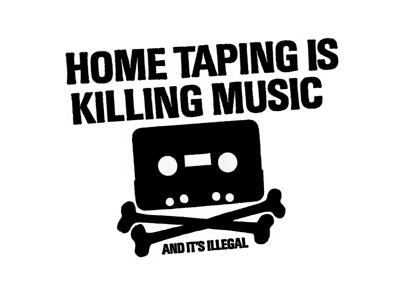
Cassettes
Cassettes were small, relatively easy to use and were very easy to carry. At the age of 12 I started buying original cassettes. The fact that I had a double cassette player helped me add to my music collection really, really fast. I remember that on Saturdays I and my friends used to hang out at my place and record cassettes all day long. Each one would bring his own cassettes and we would trade. Those were really the best times. The music that previously we didn’t know, was a whole cosmogony to us and our “virgin ears” used to suck everything that they listened to like a sponge. All that we cared about was music and the unprecedented feelings that came with it.
Vinyl Records
I was occasionally buying vinyl records until I was about 17. Until then I had collected about 50 vinyl records and around 400 cassettes (original but also copied). Cassettes were more convenient for me. However, when purchased my own turntable, amplifier and loudspeakers, I started buying vinyl records only. Cassettes were only used when I wanted to make the occasional mix tape for male and (mainly) female friends. As the time went by, I replaced cassettes with vinyl records and one time I decided to keep any cassette that kept me interested the rest of them, I gave them away. The vinyl record had enchanted me. The large covers-back covers, the printed inner sleeves with the lyrics, the photos and the abundance of information was a true experience as you went them through while you listened to the record tha kept spinning on the turntable. In 1990, I had amassed around 600 vinyl records. The fact that, while I was at school, I was working at a local record shop mad things a lot easier and I managed to enlarge my collection relatively easily. The owner of the record store, Tom, was an excellent person and passionate music enthusiast-record collector. All the vinyl records and CD’s I was buying, he was giving them to me at wholesale prices. He didn’t make a cent as profit; yet at the end of the month, my whole salary had been spent on vinyl records, so I didn’t get any money. The record store taught me a great deal of things. What I learned and helped me to increase my collection a lot and inexpensively was trading. I was buying two or three copies of good vinyl records and put them on a shelf for a period of time. When these records rose in value, I would trade them with equally valuable and expensive vinyl records. With this method, rare and expensive records, cost me very little money.
CDs
The CD meant the beginning of the end for the music industry; an end that was, sadly, inevitable. The record companies, in order to minimize production costs and maximize their profit, digitalized music, put it into smaller formats and released them on the market. I confess; I quite liked the CD as a format. They were small, convenient, produced a good sound and were very durable. A scratched CD performs very well in comparison to a vinyl record in which the smallest hairline has tremendous side effects on the sound. However, I didn’t replace my vinyl records with CDs. The vinyl record was my favorite format; although I did buy CDs when something I liked was not released on a vinyl record. That is because I was-and still am-a friend o music first and then a friend of the format.
One thing that made me delirious was the time the CD started its big rise to the top during the late 90s; more and more people tried to get rid of their vinyl records in order to replace them with CDs. For me, that was a golden era. I purchased whole record collections for a few dollars. Within two years, I was able to buy close to 8000 records for about 4000 dollars. It was my golden era as a Record Collector.
I never frowned upon the CD and I never took part on the vinyl record vs CD argument. There is some lovely music that has not been released on vinyl records but only on CD. What does that suppose to mean? That we should not listen to it? That is ridiculous.
The fall of the Vinyl Record
While the CD was commercially marching forward, the vinyl record fell into a decline. The 1996-2006 decade was especially dramatic. The world introduced the CD into his daily routine. The compact disc’s convenience was great. People could take it to work, play it in their car and… copy it onto another CD without losing the sound’s fidelity and quality. Copying was the second hit for the music industry. A small but steady hemorrhaging had already started. People started copying CDs in their homes. Large multinational companies that released artists in CDs, would also sell empty CDRs that anyone could buy and copy whatever they wanted. They provided people the rope that would be used to hang them. The deterioration of the CD had already began. To the eyes of the world, the CD had become something of minute value that could be copied, could be released as a bonus alongside a magazine etc. on the other hand, some labels and some bands insisted on releasing a finite number of copies of every release on vinyl records. The world supported that effort. The vinyl record went against the storm. The vinyl record had been injured but not dead.
Napster and P2P Networks. The End…
When napster was introduced into our lives, everything changed. All the songs that were looking for to listen to but couldn’t find, they were all there, in front of us. Music was a bunch of small, green (or white; can’t really recall, really) on a black background and all you needed to do was to press a button and download them on your hard drive. The music industry as we knew it was now over. The digital sound that the labels used to maximize their profits was now uncontrollably circulated behind every corner on the planet. Napster was eventually shut down but when that happened, it was already too late. Other p2p networks were already up and running. Later on, blogs and torrents came to the picture, and as we speak, the situation is beyond any control or repair.

Distributing vinyl records and CDs via the Internet
The damage caused by the Internet and the digital age on the music industry was non-reversible. However, some music marketplaces managed to unite a world audience that was hit brutally by the developments and started a small “resistance” against the destruction of the vinyl record and the CD. Small record labels, using small steps and calculated moves adapted to the current situation, came to the surface. A record collector united too, in small groups on the Internet and thus was created a hard core on which the great project of reviving the vinyl record was founded and based. Old school vinyl collectors are transferring their flame to the young and numbers increase as we speak.
What happens to my vinyl record collection when I die?
That is a question I get a lot from many vinyl collectors of an advanced age. A record collection is not just a piece of plastic that plays music. Vinyl records are connected with memories, events pleasant or unpleasant situations. My advice is this : When you will be between 60 and 70 years old and if you don’t have someone (eg. Your kids) to give them a part or the whole of your collection, let your records “fly” across many different places around the world. To cut the story short, just start selling your vinyl records. No matter how hard it seems, there are people that will provide your records the time and love that they need. Your records will give joy to some people that may happen to have been searching some of the vinyl records you have and you won’t be able to listen to, again. Those of you that have a large vinyl record collection, count how much time it would take you to listen to it just once and you will understand what I’m on about. Keep just the 100 vinyl records that have the most sentimental value and give away or sell the others.
Let the vinyl records fly and live …
Other VINYLOM Sections that will Interest YOU !!!
– Vinylom Encyclopedia – The story behind every Rare Vinyl Record...
– Vinylom Forum – Discuss about Vinyl Records, Music and more with Music and Vinyl Lovers from all over the world.
– Vinylom Marketplace – Millions of items available for sale and trade from sellers all over the world.BUY-SELL-TRADE !!!
--------------------------------------------------------------
Read Also...
- 7 Freaky Reasons Vinyl Records Could Get You Fired
- A Record Collector, remembers,criticizes and...proposes
- Avoid this Vinyl Record storage mistake. Maybe your records are at risk.
- How to become a successful record store owner.
- Some of the most expensive 8 track tapes ever sold!!!
- Some of the most expensive Beatles Vinyl Records ever sold !!!
- Ten Rock Vinyl Records that sold between $7000 and $20000
- The MILLION DOLLAR McDonald's Record!
- Who really “killed” the music industry ?



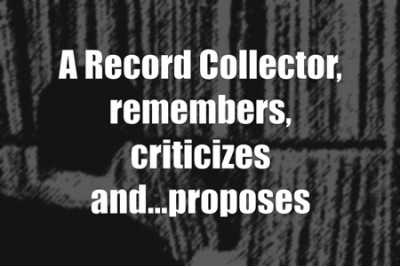

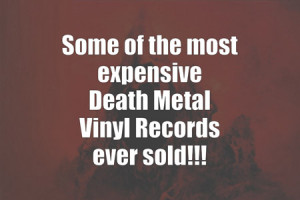
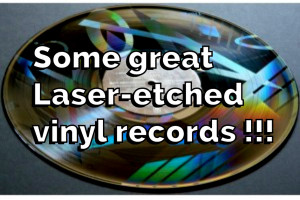
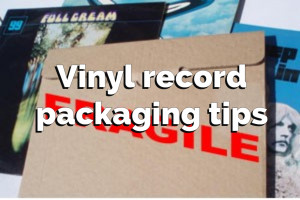
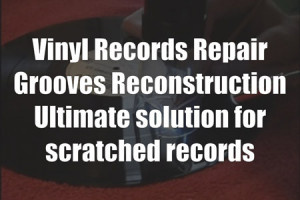
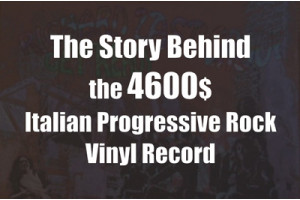
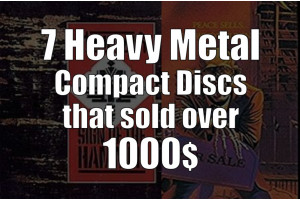
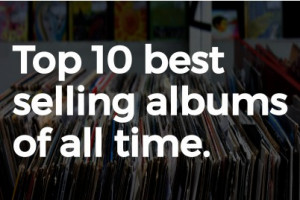
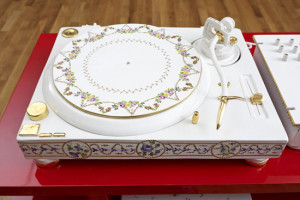
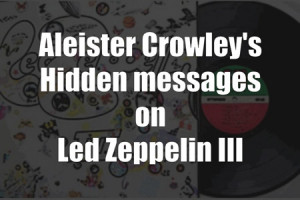
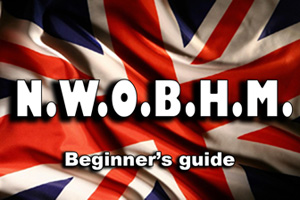
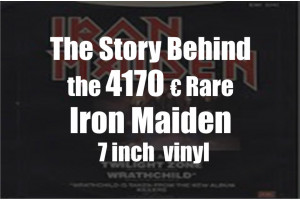
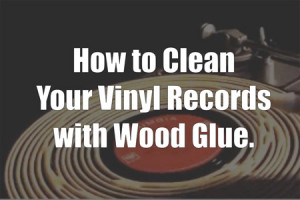
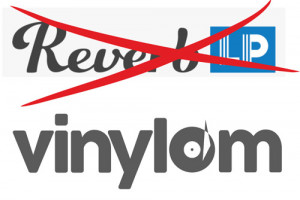
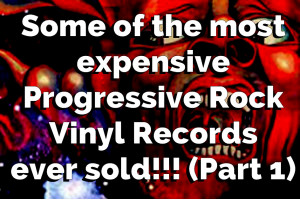

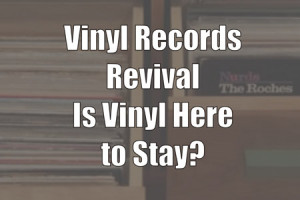
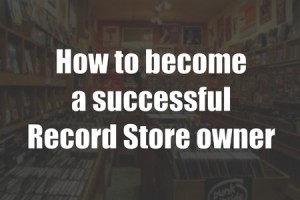
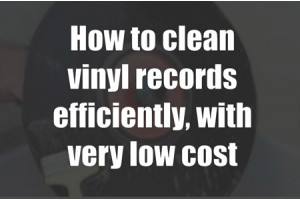
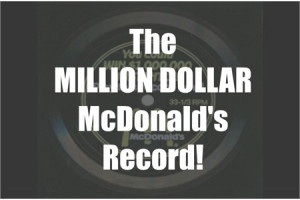
Comments
Leave A Comment